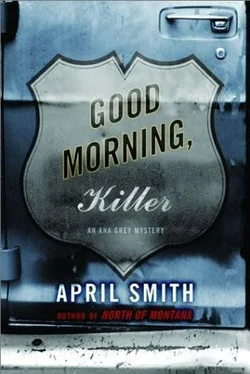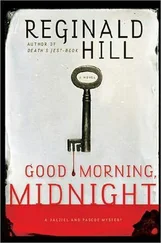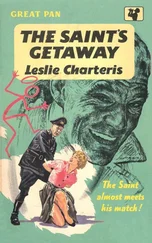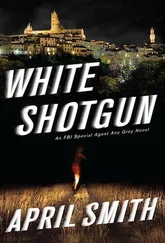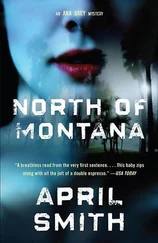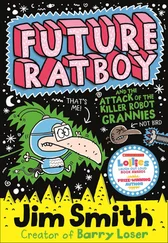“I had an affair!” Lynn sobbed quietly. “I had an affair in Milan, with a buyer from Nordstrom.”
Ross closed his eyes and shook his head with a look of perverse satisfaction, as if he had always known this punishment would come to him.
“He took my baby!” Lynn was now convulsed with tears. “Oh my God,” she kept saying. “Oh my God, oh my God.”
Eunice was back, hooking the cell phone on her belt. She took in the scene with a knowing sigh.
“Why would this man kidnap Juliana?” I was asking.
“He was very, very angry with me—”
“Why, honey?” Eunice crooned. “How could he be that angry he would take your child?”
“Because he’s mean, and possessive, and I ended the relationship.”
“You ended the relationship?”
“I sent his underwear to his wife.”
“Who is this?” demanded Ross. “ Who are you talking about? Is this Ed Hobart?”
Lynn’s whole face went crimson, and she was making coughing, barking sounds. Eunice and I were kneeling beside her and speaking soothingly, but it was impossible to unfold her from that repentant pose. Her body was like locked steel. Where was Andrew with his melting embrace?
“It’s Hobart,” said Ross with a tight, tight smile. “Head of the whole wonderful overseas Nordstrom operation. Good. Good choice. Go fuck Hobart. I guess there’s no need for the loser anymore.” He straightened up and left. A door slammed. Eunice and I exchanged a look and she darted after him.
“Tell us about this man and we will check him out.”
“He lives in Seattle,” Lynn gasped, “but he comes down here all the time. Oh, what if he has Juliana? All I can think about are terrible, awful, horrible things—”
“Ana!” Eunice interrupted sharply. “We have a situation. Dad locked himself in the powder room.”
“You must think we’re a bunch of lunatics,” sniffled Lynn.
I dragged her to her feet and into the foyer with the hat rack and the pile of Rollerblades beneath it and a small Oriental rug.
“Is there a window? What’s in there?”
“I don’t know,” she whimpered. “Bathroom stuff.”
“Ross.” I banged on the door. “What’s going on?”
“Ross!” called Lynn hoarsely. “Come out.”
I heard the toilet flushing.
“You all right, buddy?”
No answer.
“Talk to me, Ross. Or I’m going to have to come in there to make sure you’re all right.”
“Screw you!”
“Listen to me. We’re making progress—”
“You don’t know what the fuck is going on. You don’t know if my daughter is alive.”
“We don’t have anything that says she’s not alive.”
Silence.
“Let’s come out and talk about it, Ross.” Nothing. “You’ll work this through with your wife. You’re both under a lot of stress right now—”
“I’m sorry, Ross!” Lynn cried. “I love you. I’m sorry! I never meant to hurt you, but I had to tell. I had to tell to get Juliana back. She’s the only thing that matters, please—”
“I’m tired of this bullshit. Nobody listens to me.”
“ I’m listening to you,” I answered boldly. “What is bullshit, Ross? Your definition. Tell me what that is.”
“Bullshit is not getting anywhere. Bullshit is farting around and dicking around when I told you to go after Yi. ”
“I hear you about Yi. What else is bullshit?”
Silence.
“Are you thinking of doing something to yourself in there, Ross? Are you thinking of committing suicide?”
“Fuck you. Fuck everybody!”
“You haven’t answered my question. Do you want to kill yourself?”
Eunice said, “I think we should call for backup. Get the guys outside—”
“I know,” I said, “but I’d rather—”
Suddenly the door flew open. My hand went to my weapon.
Eunice yelled, “Watch out!”
Lynn screamed, “Don’t shoot my husband!”
We ducked and rolled.
Ross was standing in the doorway of the bathroom, holding a gun.
“Easy! Easy!” he cried. “Don’t shoot! Jesus Christ!”
“Put the weapon down on the ground. Now. ”
He put it on the ground. It was not a gun. Worse. A cell phone.
An emergency briefing was called for 5 p.m.
The Santa Monica Police Department was housed in back of City Hall, in a white Moderne building with blue trim that suggested sand and sea. The police department was in the lee of the building, away from sand and sea, looking at an overpass. If you narrowed your vision to exclude the high-rise hotels, condominiums and gangland ghettos, you might get an idea of what they saw when they built this public works project in the thirties: a sleepy little beach town sparkling with optimism in which all that would be required of the local police would be the management of drunks and theft of the occasional Packard.
They built it small and it stayed small — quaint, by today’s antiseptic standards. The vintage sixties station in Long Beach, where my grandfather, Poppy, served, looks hip by comparison, and the Bureau downright millennial, I thought, quickening my pace across the Civic Center plaza. It was four-thirty and already several Bu-cars were lined up in the lot.
The entryway held a couple of metal chairs and drawings on the wall by schoolchildren. Turn right and a brown arrow led to the holding cells. The hallway to the left was short and dully lit, lined with cases of patches and awards. Over a doorway swung the kind of lacquered wooden sign they used to have in Western movies over the saloon, only this one read Licenses. I hoped they never remodeled the place. I hoped they turned it into a museum.
As I hurried up the staircase leading to Investigations, a woman clattered right into my arms.
“Ana! All the computers went down!”
Margaret Forrester, the police liaison working with the Bureau on the kidnap, had a flair for the dramatic, but as she gripped my elbows, eyes wide, it was clear she was not kidding.
“I am in such trouble!” she stuttered. “Where is your guy?”
She was a beautiful woman, about thirty years old, with layers of glossy brown hair and a face too decorative, too perfectly formed, with its strong dark eyebrows, squarish cheekbones and egg-white skin, to belong in a police station. You had to wonder at the natural selection that produced such a striking girl from a pair of alcoholic dirt-poor Oklahoma drifters, who, according to her, literally lived in the dirt, picking apricots and peaches in the San Joaquin Valley. Nobody at the station looked like Margaret, nobody dressed like Margaret, in a well-cut camel sheath with a shawl collar, low-slung belt and suede boots. Her usual accessories were an ID tag and a water bottle. There was a tinkle about her I would later identify as seashells. She had a business on the side: fashioning natural objects into “body adornments” that she sold to stores. She often wore her own creations. That day it might have been a concoction of abalones, or Native American bracelet charms with feathers.
“Which guy are you talking about?”
“The tech. There he is — Ramon!” she called up the stairs. “Come down here, sweetheart, I’ll show you where the circuit breaker is!”
Ramon’s work boots thundered out of the dimness and he appeared, holding a flashlight.
“I think it might be under there.” Margaret indicated an unlikely hatch beneath the staircase. “But your computers are what’s causing the problem.”
“It ain’t our computers, Chiquita,” Ramon said disdainfully. “It’s your freaking wiring,” grimacing as he pried at the warped door.
Читать дальше
